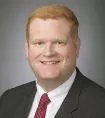- within Compliance topic(s)
Sheppard Mullin partners Joseph Jay and Douglas Yang published an article in the Daily Journal covering the Ninth Circuit's recent decision in USA v. Fortenberry to reject the "effects-based" venue test in false statement cases, as illustrated by the recent conviction of former U.S. Congressman Jeffrey Fortenberry.
Fortenberry was convicted in California for making false statements to federal investigators about illegal campaign contributions, despite the interviews occurring in Nebraska and Washington, D.C. The trial court accepted the government's argument that the venue was appropriate not only where the false statements were made but also where they affected a federal investigation. However, the Ninth Circuit vacated the conviction, asserting that the proper venue for prosecuting false statements is strictly where the statement is made, focusing on the act of making the false statement rather than its effects.
The ruling not only impacts how prosecutors and defense attorneys approach venue in false statement cases but also opens broader challenges to venue in various criminal cases. The decision raises practical considerations about the conduct of law enforcement interviews, particularly remote interviews, which could be strategically used by interviewees to favor certain jurisdictions. Thus, the legal community faces increased uncertainty and strategic considerations regarding venue appropriateness, which could significantly affect the prosecution and defense of federal criminal cases across the country.
Click here to read the full article. (A subscription is required)
The content of this article is intended to provide a general guide to the subject matter. Specialist advice should be sought about your specific circumstances.


